Will China-Solomon Islands security cooperation bring new tensions to the South Pacific?
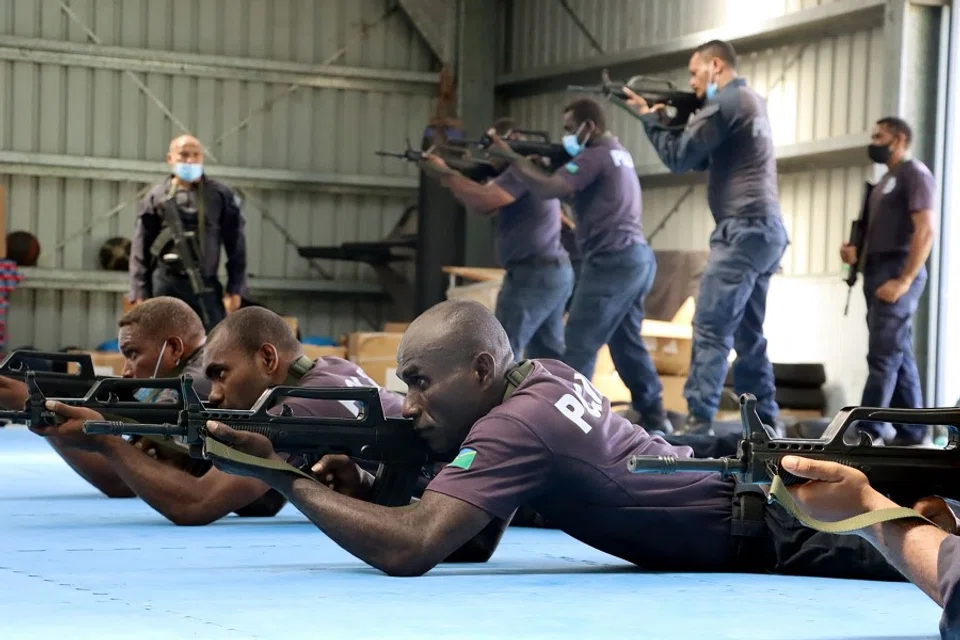
The Solomon Islands announced today that it has inked a wide-ranging bilateral Security Cooperation Framework with Beijing. This move has put the US, Australia and New Zealand on high alert amid concerns about China possibly expanding its influence in the South Pacific and the potential militarisation of the region.
Observers will be closely watching whether the Solomon Islands will become China's "Djibouti base" in the South Pacific and have a deterrent effect on the Australia-UK-US trilateral security partnership (AUKUS).
... its tilt towards Beijing has deepened internal divisions in the country.
Growing closer to Beijing
Solomon Islands has a population of less than one million, and only around 800 police personnel and no local military. For a long time, it has considered nearby Australia and New Zealand its main security partners. In 2017, the country signed a bilateral security deal with Australia, allowing the deployment of Australian police and armed forces to the islands.
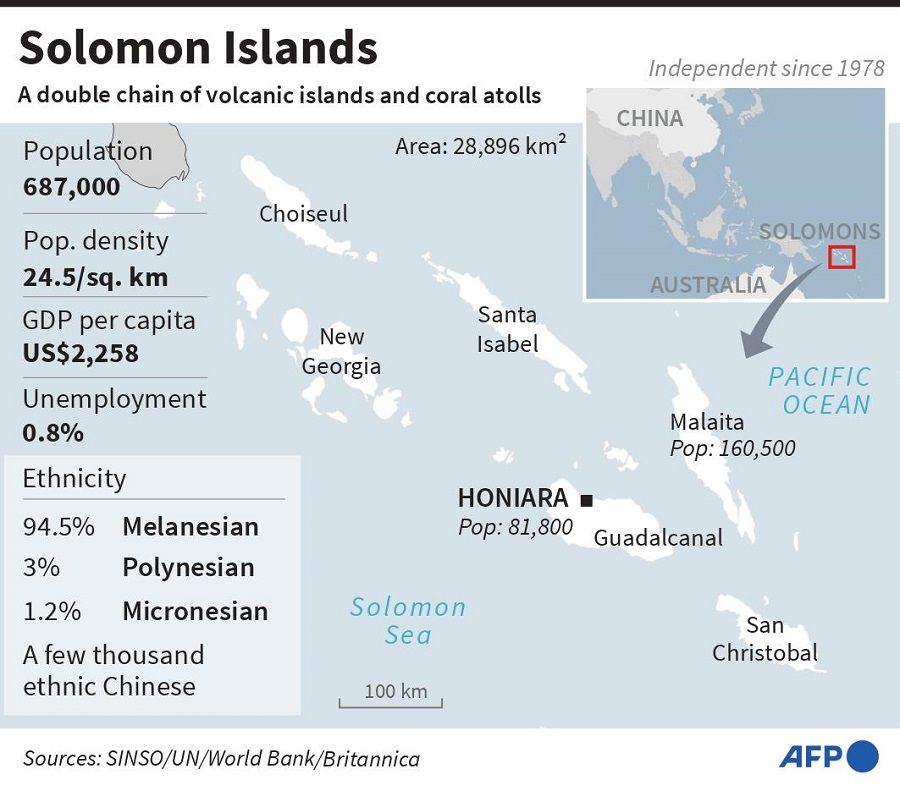
However, after switching diplomatic recognition from Taiwan to Beijing in 2019, this strategically important Pacific island nation has grown closer to Beijing when it comes to security, and its tilt towards Beijing has deepened internal divisions in the country.
In November last year, the capital Honiara saw large-scale anti-China unrest. Subsequently, China provided supplies to quell the violence and sent police advisers to help train the Solomon Island police, drawing the US's attention.
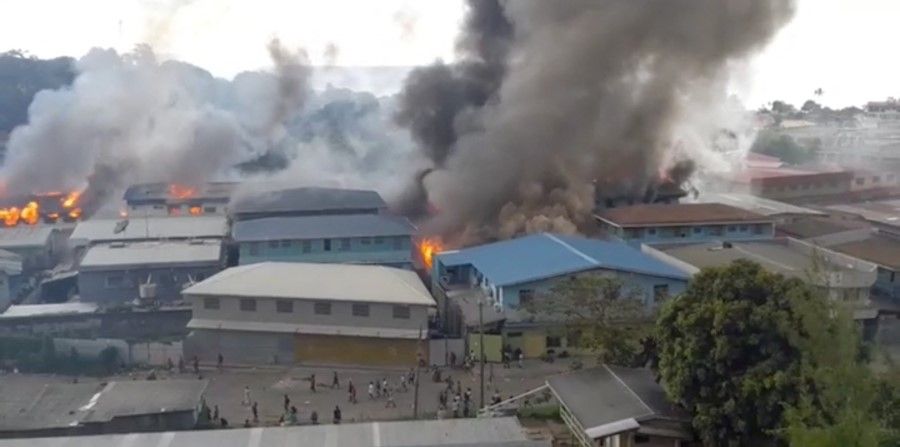
In February, US Secretary of State Antony Blinken visited Fiji and committed to providing financial support to the Pacific islands. Citing concerns over China's influence, the US also said that it would reopen its embassy in the Solomon Islands in line with its strategic overview of the Indo-Pacific. The US has not had an embassy in the island state for 29 years.
In a virtual meeting on 18 March, Solomon Islands Minister of Police Anthony Veke and Executive Vice-Minister of China's Ministry of Public Security Wang Xiaohong signed a memorandum of understanding on policing cooperation. This means that China will be more involved in the security affairs of the Solomon Islands. According to a draft document which has been circulating online, Solomon Islands can request for China to send police, military personnel and other armed forces, and China would be allowed to "perform ship visits to, carry out logistical replenishment in, and have stopovers in" the Solomon Islands.
Concerns over their 'backyard'
This new development has sparked unease among Australia's ruling party and opposition. On 24 March, Australia's Minister for Home Affairs Karen Andrews told reporters that the Pacific is Australia's "backyard", and that Australia is "very concerned about any activity that is taking place in the Pacific islands".
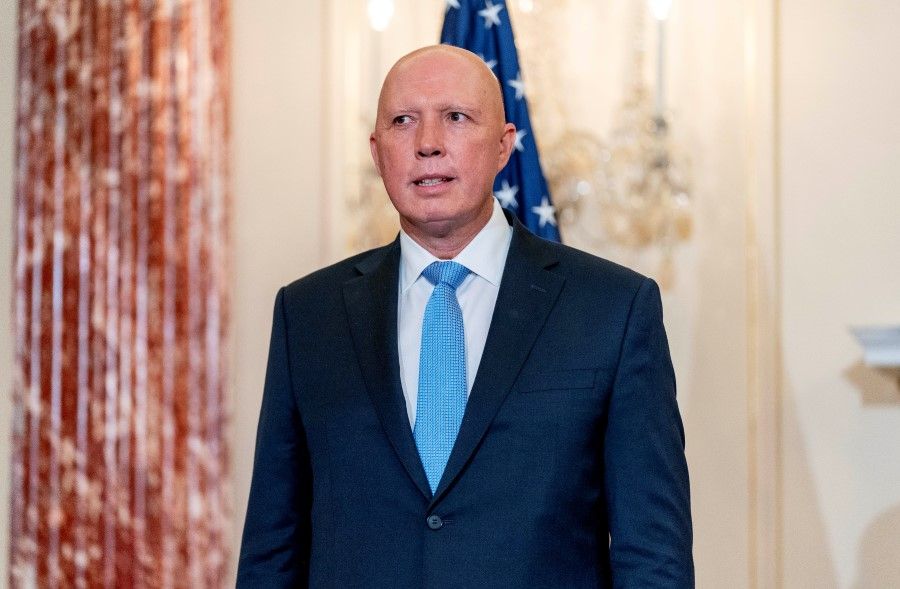
Australia's Minister of Defence Peter Dutton said, "We would be concerned, clearly, at any military base being established (barely 2,000 kilometres from Australia's shores) and we would express that to the Solomon Islands government." He also warned Pacific nations to "be realistic about China's footprint".
Australia's Deputy Leader of the Opposition Richard Marles said that the draft agreement was "really concerning", and called on the government to do "everything" to support the Pacific "to make sure at the end of the day Australia is the natural partner of choice when it comes to security".
Even New Zealand Prime Minister Jacinda Ardern, who has long implemented a relatively pragmatic China policy, said on 28 March that the move was "a potential militarisation of the region". The next day, New Zealand signed a partnership agreement with Fiji, pledging to work closely together in the fields of security, protection of common interests, economic resilience, and so on, in a clear move to strengthen its position in its strategic backyard.
The island nation's opposition has accused Prime Minister Manasseh Sogavare of using the new police pact and the security agreement with China to consolidate power.
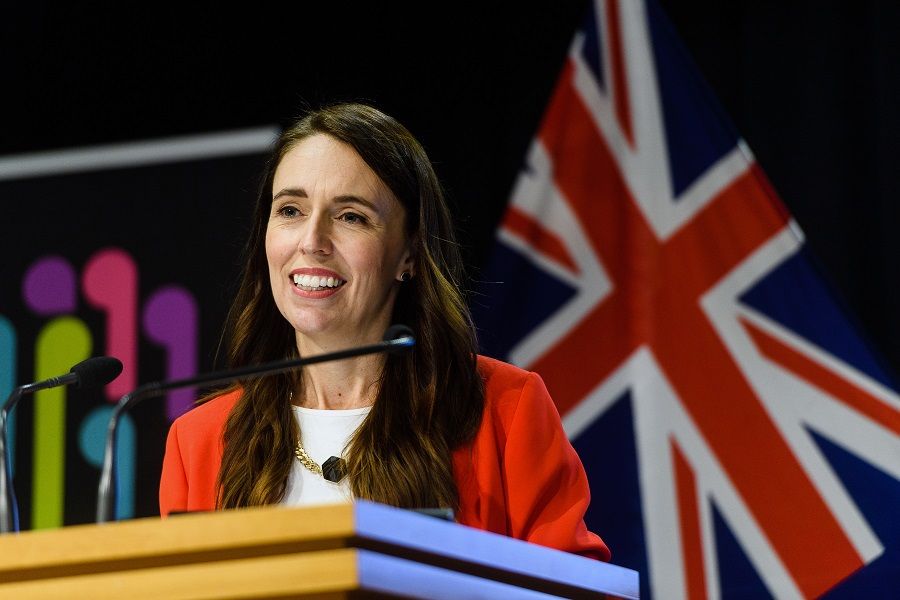
China-Solomon Islands security cooperation is also being seen as a means of interfering in the Solomon Islands' internal affairs. The island nation's opposition has accused Prime Minister Manasseh Sogavare of using the new police pact and the security agreement with China to consolidate power.
On 29 March, Sogavare rebuked the claims that the security agreement would result in an autocratic government, and described the backlash to security negotiations with China as "very insulting". He asserted that Solomon Islands will not "pick sides" and that the security treaty with Australia would remain intact. He emphasised, "We are not pressured in any way by our new friends and there is no intention whatsoever to ask China to build a military base in the Solomon Islands."
On 28 March, Chinese foreign ministry spokesperson Wang Wenbin stated that the "normal law enforcement and security cooperation" between both countries is "beyond reproach as it is beneficial to social stability and lasting security of Solomon Islands and the common interest of regional countries".
Without mentioning names, he implied that countries such as the US and Australia "should earnestly respect Solomon Islands' sovereignty and its independent decisions instead of deciding what others should and should not do self-importantly and condescendingly from a privileged position". He asserted, "Any attempt to disrupt and undermine mutually beneficial cooperation between China and Pacific island countries is doomed to fail."
China-Australia tensions worsen
The probability of China-Australia relations emerging from its low point is becoming increasingly low due to the growing geopolitical dispute.
China's increasing clampdown on Australia's economy has had a chilling effect in the region, but it has yet to force Australia to soften its hardline policy towards China. Instead, anti-China sentiment in the country is growing.
In the next couple of days, Australia could finalise its free trade agreement with India, which is also a member of the Quadrilateral Security Dialogue (Quad). This agreement would further reduce Australia's dependence on the Chinese market.
After publicly accusing China of failing to condemn Russia's invasion of Ukraine, Australian Prime Minister Scott Morrison refused to meet the new Chinese ambassador to Australia, Xiao Qian, and asked China to reopen ministerial dialogues between both countries instead.
It can be foreseen that the Indo-Pacific region will become a chessboard on which great power competition plays out.
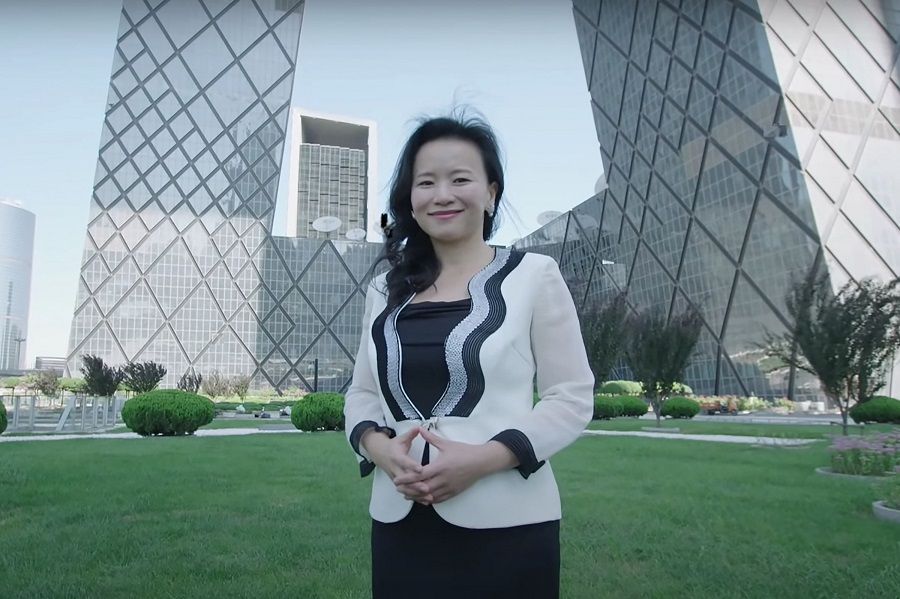
At the same time, China-Australia relations are also constrained by other human rights and national security issues. Cheng Lei, an Australian citizen and television anchor for China Global Television Network, has been detained by China for over 18 months on the charge of providing state secrets or intelligence to foreigners or foreign organisations. (N.B. Chang Lei faced a closed court trial on 31 March and Australian ambassador to China Graham Fletcher was denied entry to attend the trial.)
With rifts in China-Australia relations, China's further security involvement in the South Pacific will inevitably stir up deeper conflicts between the two countries. It can be foreseen that the Indo-Pacific region will become a chessboard on which great power competition plays out. If countries that have the means to choose sides are not careful, they could become pawns in this great power confrontation.
Related: Chewing gum on the sole of China's shoes? Australia-China relations take a nosedive | Invite list for Summit for Democracy shows true calculations in American foreign policy | With AUKUS in place, now what for key players in the Indo-Pacific? | Power struggles and Chinese influence in the Pacific island region | China-Australia relations: Downward spiral as Australia plays 'deputy sheriff' to the US? | Exemplary punishment: How China's using wolf-warrior tactics on Australia to warn the rest
